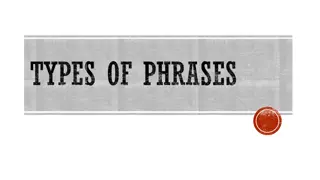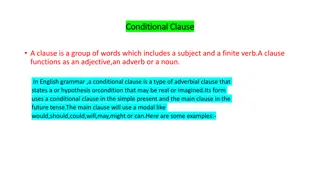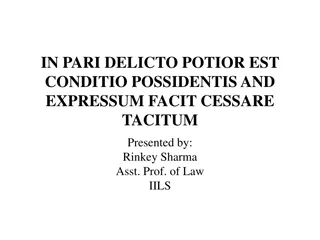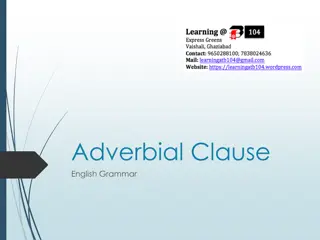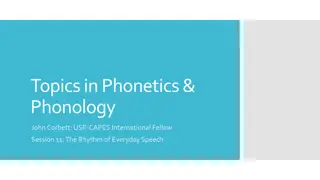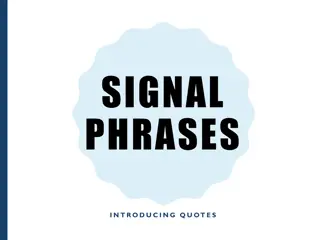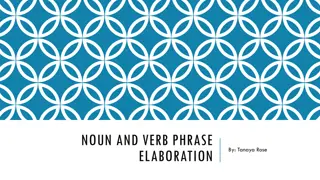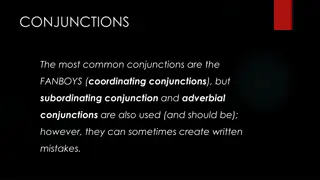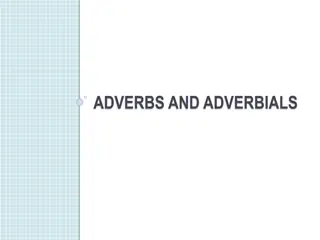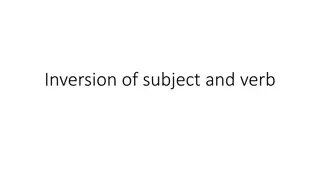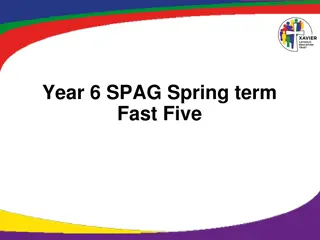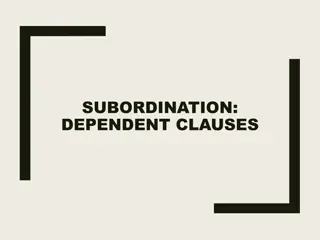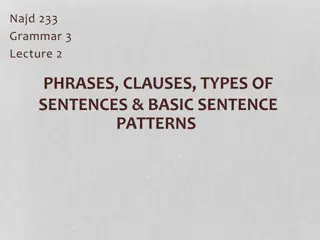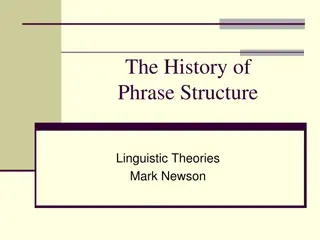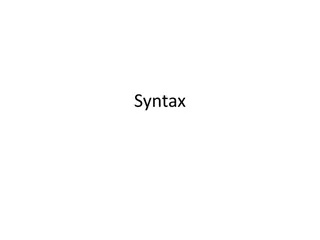Protecting Your WiFi with an Internet Kill Switch
The possibility of internet outages is quite real in a time when connectivity is essential. The phrase \"internet kill switch\" has gained popularity to describe how governments or other bad actors can restrict or stop people's access to the internet, putting people's lives and businesses at risk of
0 views • 1 slides
Protecting Your WiFi with an Internet Kill Switch
The possibility of internet outages is quite real in a time when connectivity is essential. The phrase \"internet kill switch\" has gained popularity to describe how governments or other bad actors can restrict or stop people's access to the internet, putting people's lives and businesses at risk of
0 views • 1 slides
Rich snipptes
User intent, also known as search intent or query intent, refers to the underlying goal or purpose behind a user's search query when they use a search engine. It represents what the user is looking to accomplish or find when they enter a specific keyword or phrase into a search engine.
1 views • 8 slides
Custom Metal Art
Metal wall art with the phrase \"theonlyplanetearth\" can be found all over the world, in places like Singapore, Malaysia, the UAE, Saudi Arabia, Kuwait, Bahrain, Oman, Qatar, Canada, the US, Germany, Japan, France, Italy, the UK, Brazil, India, Hong Kong, Colombia, Argentina, Mexico, Australia, and
2 views • 1 slides
Understanding Different Types of Phrases in English Grammar
Explore the various types of phrases in English grammar, including noun phrases and adjectival phrases. Learn how modifiers can come before or after the noun in a phrase, and practice identifying these phrases in sentences. Enhance your understanding of grammar with clear examples and explanations.
1 views • 12 slides
Understanding Prepositions: Types, Functions, and Examples
Prepositions play a crucial role in linking nouns, pronouns, and phrases to other words in a sentence, describing various relationships. They can be classified into simple, compound, phrase, and participle prepositions, each serving different purposes such as indicating place, time, agency, manner,
1 views • 35 slides
Understanding Conditional Clauses in English Grammar
A conditional clause is a type of adverbial clause in English grammar that states a hypothesis or condition using a conditional clause in the simple present and the main clause in the future tense. This type of clause uses modal verbs like would, should, could, will, may, might, or can. Conditional
2 views • 6 slides
Understanding Noun Clauses: Examples and Usage
A clause is a group of words with a subject and a verb, while a phrase lacks a subject and verb. Noun clauses, which function as nouns, can be subjects, objects of verbs or prepositions, and complements. They often begin with question words like what, when, or why. Examples illustrate their usage in
2 views • 49 slides
Understanding Noun Clauses in English Grammar
A clause is a group of words with a subject and a verb, while a phrase lacks one. Independent clauses can stand alone, while dependent clauses cannot. Noun clauses function as nouns in a sentence, serving different roles like subjects, objects, prepositional objects, and complements. They can start
1 views • 49 slides
Understanding Adjectivals in Noun Phrases: A Comprehensive Guide
Adjectivals, including determiners, adjectives, and nouns, play crucial roles in modifying nouns within noun phrases. This guide explores the different types of adjectivals, their positions within a phrase, the use of pre-headword modifiers such as determiners, and the order of adjectives and nouns.
1 views • 40 slides
Guess the Phrase: A Fun Lip-Reading Game Show
Players participate in a lip-reading game show where they have to guess words or phrases mouthed by a host. Each correct guess earns points, with the player accumulating the most points declared as the winner. Quick guesses in the group chat are key to winning rounds. Host mutes and player unmutes e
0 views • 20 slides
Understanding English Imperative Sentences
English imperative sentences function as directives or commands, characterized by having no overt subject noun phrase, using an implicit second-person pronoun (you) as the subject, being tenseless with the base form of the verb, always indicating future actions, and not occurring in subordinate clau
1 views • 22 slides
Understanding Noun Clauses in English Grammar
A clause is a group of words with a subject and verb, while a phrase lacks one. Noun clauses, functioning as nouns, serve various roles in sentences. They can be subjects, objects of verbs/prepositions, or complements. Starting with question words like what, when, or why, these clauses mirror statem
0 views • 49 slides
Understanding the Legal Maxims In Pari Delicto and Expressum Facit Cessare Tacitum
In Pari Delicto Potior Est Condicio Possidentis is a Latin phrase meaning "in equal fault, better is the condition of the possessor." It signifies that when parties are equally at fault, the possessor has the advantage. Expressum facit cessare tacitum, another legal maxim, states that what is expres
0 views • 6 slides
Understanding Adverbial Clauses in English Grammar
Adverbial clauses in English grammar serve as adverbs to modify verbs, providing information about time, place, cause, contrast, condition, purpose, result, and manner. By exploring the types of adverb clauses, subordinating conjunctions, and examples, you can enhance your understanding of how adver
0 views • 10 slides
Unveiling the Harsh Reality_ No Mercy in Mexico – An In-Depth Exploration
In recent years, Mexico has garnered global attention not just for its vibrant culture and stunning landscapes but also for the troubling surge in violence and crime. The phrase \"No Mercy in Mexico\" has become emblematic of the extreme brutality th
0 views • 5 slides
Understanding Complements in Grammar
The word "complement" originates from Latin meaning to fill up or complete and is essential in completing the meaning of a verb. Complements can be a noun, pronoun, or adjective but never an adverb. They are never found in a prepositional phrase. Learn about direct objects, indirect objects, and pre
0 views • 15 slides
Six-Room Poem Exploration
Dive into a creative journey through six rooms, each offering a unique perspective on observation and introspection. From seeking out the amazing, beautiful, or interesting in the first room to contemplating light, sound, questions, feelings, and selecting a significant phrase in the final room, thi
0 views • 10 slides
Understanding English Rhythm and Stress Patterns in Speech
Delve into the nuances of English rhythm and stress patterns in speech with a focus on word stress, phrase stress, and the principle of eurhythmy. Explore how stress is influenced by volume, pitch, and duration of syllables in monosyllabic, disyllabic, trisyllabic, and polysyllabic words, with empha
0 views • 25 slides
Understanding Reader Response in Charity Campaign Texts
Explore the impact of adverbial choices in charity campaign texts like the RSPCA advert, analyzing how they shape reader perception and evoke emotional response. Discover the nuances of positioning readers through sentence structure and advocating for a cause effectively.
0 views • 8 slides
Learning Prepositions: Definition, Types, and Examples
Explore the fundamentals of prepositions through this educational content. Learn about the definition of prepositions, various types including simple, compound, and phrase prepositions, and see examples of prepositions in sentences. Enhance your understanding of how prepositions show the relationshi
0 views • 28 slides
Mastering Indirect Speech and Time Adverbials
Explore the nuances of indirect speech in English language with a focus on tense changes and adverbial phrases of time. Learn how to accurately report what someone said and correctly transform adverbs to match the context of the reported speech. Enhance your language skills with practical examples a
0 views • 5 slides
Mastering the Art of Introducing Quotes with Signal Phrases
Understanding the importance of signal phrases in academic writing. Signal phrases provide context, establish credibility of sources, and prevent dropped quotes. Learn the key elements required for an effective signal phrase and how to structure them using different formulas. Enhance your writing by
1 views • 16 slides
Understanding Grammatical Development in Speech-Language Pathology
Explore a broader perspective of grammatical development in speech-language pathology focusing on noun and verb phrase elaboration. Learn about identifying and elaborating noun phrases, substitution tests, and the elements of an elaborated noun phrase. Gain insights into clinical approaches and lang
0 views • 28 slides
Mastering Conjunctions in Writing: Tips and Examples
Learn about the different types of conjunctions - coordinating, subordinating, and adverbial conjunctions - along with helpful writing tips and examples for using them correctly in sentences. Understand common mistakes to avoid and enhance the flow and clarity of your writing with conjunction usage.
0 views • 23 slides
Understanding Adverbs and Adverbials in English Grammar
Adverbs modify various elements in a sentence, such as verbs, adjectives, and even whole clauses. Not all adverbs end in "ly," and they can belong to categories like time, place, degree, and discourse markers. Adverbials are strings of words that modify functions, including prepositional phrases, no
1 views • 9 slides
Understanding Inversion in English Grammar
Inversion in English grammar refers to the reversal of the usual word order of a subject and a verb in a sentence. This reversal often occurs when starting a sentence with an adverb or adverbial phrase of place, creating a more dramatic effect. Inversion is also seen in direct speech, where the subj
0 views • 11 slides
Year 6 SPAG Spring Term Fast Five Challenges
This set of challenges covers various aspects of English grammar for Year 6 students, including identifying determiners, using modal verbs, changing passive to active voice, and more. Students will practice writing in different tenses, identifying adverbial phrases, and working with prefixes and hom
0 views • 34 slides
Exploring NLP and Machine Translation Through Examples
In the content provided, we delve into the concepts of Natural Language Processing (NLP), Machine Translation, and Phrase Alignment through various examples. The visuals illustrate phrase-based translations, alignment comparisons between Spanish and English sentences, and the integration of environm
1 views • 20 slides
Partitive Pronouns in Italian and Dutch: A Comparative Analysis
This study explores the use of partitive pronouns in intransitive contexts in Italian and Dutch, examining their roles in both languages. The research delves into the nuances of partitive pronouns, their syntactic structures, and their interactions with direct objects and quantified adverbial phrase
0 views • 31 slides
Unraveling the Frisian Phrase "Hikke en Tein" and Its Origins
Explore the intriguing Frisian phrase "Hikke en Tein" and its rich cultural significance. Delve into its origins in Tytsjerksteradiel and the interpretations related to birthing, procreation, and movement. Uncover the various dimensions of this phrase through historical references and linguistic ana
0 views • 8 slides
English Grammar Final Exam Review
Subordinate clauses, nominal phrases, and noun clauses are identified within the context of adjectival, adverbial, or nominal functions. The exercise covers recognizing nominal clauses following prepositions as noun phrases, pronouns, gerunds, or nominal clauses. Additionally, combining sentences us
0 views • 17 slides
Morphology and Optionality in Heritage Finnish Px Clauses
Explore the analysis of possessive suffixes (Px) in Finnish temporal adverbial clauses with a focus on optionality among Heritage Finnish speakers in different regions. Discover insights into refunctionalisation processes and the influence of language contact on change within loci. Definitions and c
0 views • 26 slides
Understanding Grammar Terms in Business Translation (ENB4202)
Explore key grammar terms such as action verb, adjective, adverb, article, clause, coordinating conjunction, dependent clause, gerund, linking verb, noun, noun phrase, object, phrase, preposition, pronoun, and subject in the context of business translation. Learn their definitions, functions, and ex
0 views • 14 slides
Understanding Subordination in Grammar
Subordination in grammar involves dependent clauses that are not independent. These subordinate clauses play three main roles in a sentence: adverbial, adjectival, and nominal. Adverbial clauses provide information on time, manner, place, condition, reason, and purpose. Adjectival clauses act as mod
0 views • 26 slides
Understanding Phrases, Clauses, and Sentence Types in Grammar
A phrase is a group of words within a clause that conveys meaning, such as noun phrases, verb phrases, adjective phrases, adverbial phrases, and prepositional phrases. Clauses are groups of words containing a subject and a verb, with independent and dependent clauses being the two main types. Indepe
0 views • 33 slides
Evolution of Phrase Structure Linguistic Theories
Explore the evolution of linguistic theories on phrase structures, from X-bar theory to Generalised X-bar theory in the 1980s. Understand how all phrases contain heads, complement phrases, and specifier phrases, shaping our understanding of language structures.
0 views • 33 slides
Understanding Syntax in Linguistics
Words in a language are organized into phrases and clauses with specific syntactic categories like Noun Phrase, Verb Phrase, and Adjective Phrase. Each phrase has a head such as a noun, verb, or adjective, and phrase structure rules help diagram the syntactic structure. Clauses are the largest units
0 views • 20 slides
Mastering Conjunctions: A Comprehensive Guide
Learn about the different types of conjunctions, including coordinating and adverbial conjunctions, and how to use them correctly in writing. Explore common mistakes to avoid with comma placement and discover a variety of adverbial conjunctions to enhance your writing style. This guide also delves i
0 views • 23 slides
Examples of Using "-ing" as an Adverbial
Explore various examples demonstrating the use of "-ing" as an adverbial in sentences, showcasing how it modifies the actions or events described. From expressing reasons to highlighting simultaneous actions, learn how to incorporate this form effectively in your writing.
0 views • 20 slides




